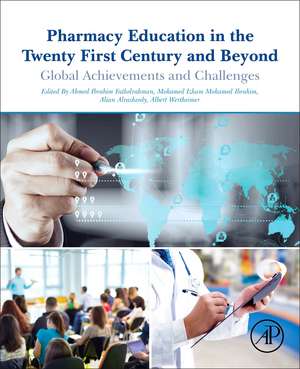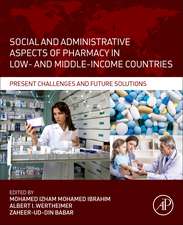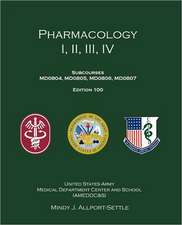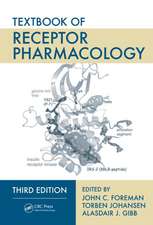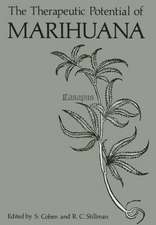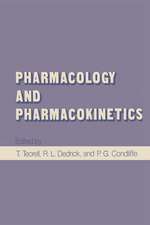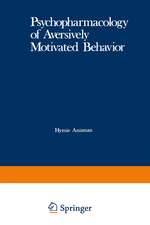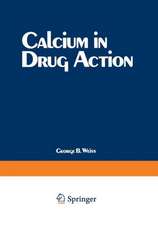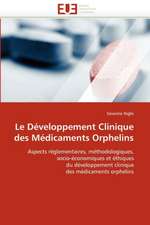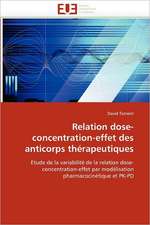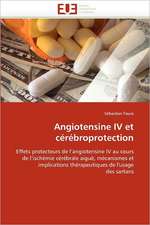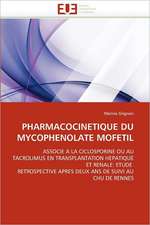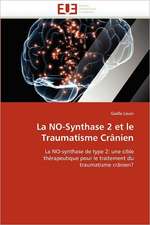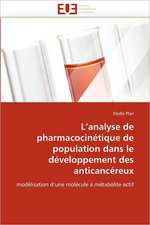Pharmacy Education in the Twenty First Century and Beyond: Global Achievements and Challenges
Editat de Ahmed Fathelrahman, Mohamed Izham Mohamed Ibrahim, Alian A. Alrasheedy, Albert Wertheimeren Limba Engleză Paperback – 19 apr 2018
As a result, this book provides pharmacy educators, administrators, students and practitioners with a comprehensive guide to pharmacy education that will enable readers to choose the best approaches to improve, reform or select a program based on worldwide experience and the latest available evidence and research.
- Describes and discusses the advantages and disadvantages associated with different types of pharmacy curricula, degree programs, styles of learning, teaching strategies, and more
- Edited and written by a team of authors to provide diverse global experiences and insights into what factors make a program attractive and successful
- Covers important topics in pharmacy education, such as quality and accreditation issues, the business of pharmacy education, leadership and similarities
Preț: 443.44 lei
Preț vechi: 556.78 lei
-20% Nou
Puncte Express: 665
Preț estimativ în valută:
84.85€ • 88.82$ • 70.62£
84.85€ • 88.82$ • 70.62£
Carte tipărită la comandă
Livrare economică 24 martie-07 aprilie
Preluare comenzi: 021 569.72.76
Specificații
ISBN-13: 9780128119099
ISBN-10: 0128119098
Pagini: 378
Dimensiuni: 191 x 235 x 23 mm
Greutate: 0.77 kg
Editura: ELSEVIER SCIENCE
ISBN-10: 0128119098
Pagini: 378
Dimensiuni: 191 x 235 x 23 mm
Greutate: 0.77 kg
Editura: ELSEVIER SCIENCE
Public țintă
Pharmacy administrators in academia and practice sites, pharmacy educators, pharmacy students, practicing pharmacists, researchers interested in pharmacy practice, pharmacy education and the pharmaceutical sciencesCuprins
Section I: Defining Pharmacy Education
1. History of Pharmacy Education
2. Philosophy and Models
Section II: Pharmaceutical Education: Basic Roles and Contributions
3. Role of Pharmacy Education in the Advancement of Pharmacy Practice
4. How Pharmacy Education Contributes to Pharmaceutical Research and Development
5. How Pharmacy Education Contributes to Patient and Pharmaceutical Care
6. The Role of Pharmacy Education in Public and Community Health
Section III: Pharmaceutical Education: Features and Contributing Factors
7. Curricula Orientations: Classical Versus Clinically Oriented Curricula
8. Qualifications and Degrees Offered in Pharmacy Worldwide: A Comprehensive Overview
9. Teaching Strategies Used in Pharmacy
10. Assessment Methods and Tools
11. Similarities and Differences Between the East and West: Developed and Developing Worlds
Section IV: Special Issues in Pharmaceutical Education
12. Continuous Professional Development (CPD) and Self-learning
13. Capacity Building in Pharmacy Education
14. Quality and Accreditation Issues in Pharmacy Education
15. The Business of Pharmacy Education: Market Competition/Private Versus Government Players
16. Equality, Disparity and Ethical Issues in Pharmacy Education
17. Regulatory and Legal Issues in Pharmacy Education
18. Curriculum Development: Mismatch between Supply and Demand
19. Leadership in Pharmacy Education
20. Interprofessional Education in Pharmacy
21. Debatable Issues and Future Dimensions in Pharmacy
22. Concluding Remarks about Pharmacy Education: Achievements, Challenges and Potential Solutions
1. History of Pharmacy Education
2. Philosophy and Models
Section II: Pharmaceutical Education: Basic Roles and Contributions
3. Role of Pharmacy Education in the Advancement of Pharmacy Practice
4. How Pharmacy Education Contributes to Pharmaceutical Research and Development
5. How Pharmacy Education Contributes to Patient and Pharmaceutical Care
6. The Role of Pharmacy Education in Public and Community Health
Section III: Pharmaceutical Education: Features and Contributing Factors
7. Curricula Orientations: Classical Versus Clinically Oriented Curricula
8. Qualifications and Degrees Offered in Pharmacy Worldwide: A Comprehensive Overview
9. Teaching Strategies Used in Pharmacy
10. Assessment Methods and Tools
11. Similarities and Differences Between the East and West: Developed and Developing Worlds
Section IV: Special Issues in Pharmaceutical Education
12. Continuous Professional Development (CPD) and Self-learning
13. Capacity Building in Pharmacy Education
14. Quality and Accreditation Issues in Pharmacy Education
15. The Business of Pharmacy Education: Market Competition/Private Versus Government Players
16. Equality, Disparity and Ethical Issues in Pharmacy Education
17. Regulatory and Legal Issues in Pharmacy Education
18. Curriculum Development: Mismatch between Supply and Demand
19. Leadership in Pharmacy Education
20. Interprofessional Education in Pharmacy
21. Debatable Issues and Future Dimensions in Pharmacy
22. Concluding Remarks about Pharmacy Education: Achievements, Challenges and Potential Solutions
